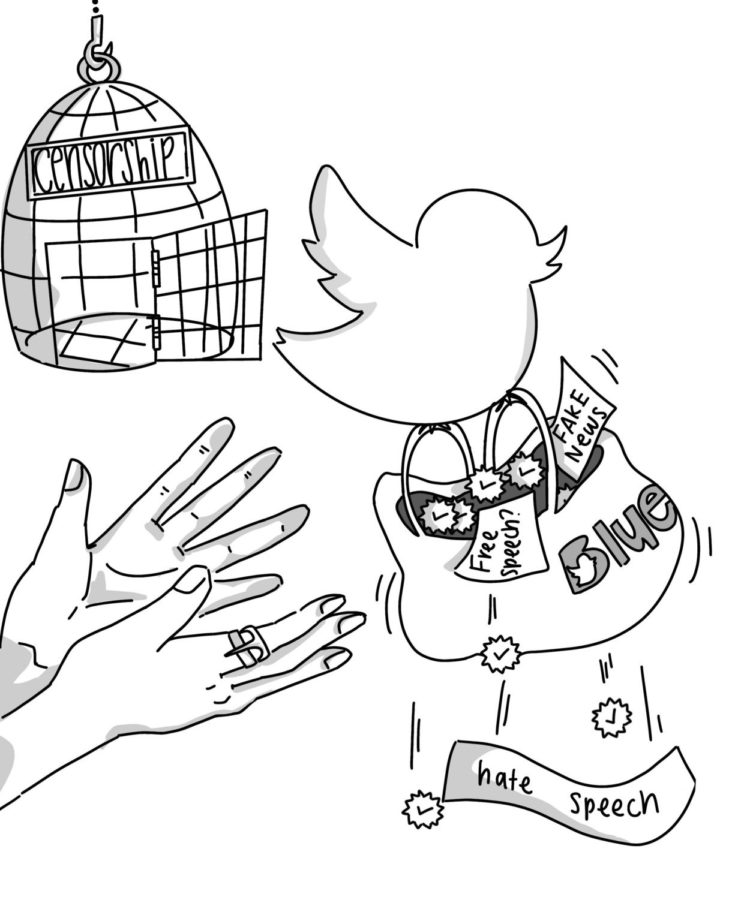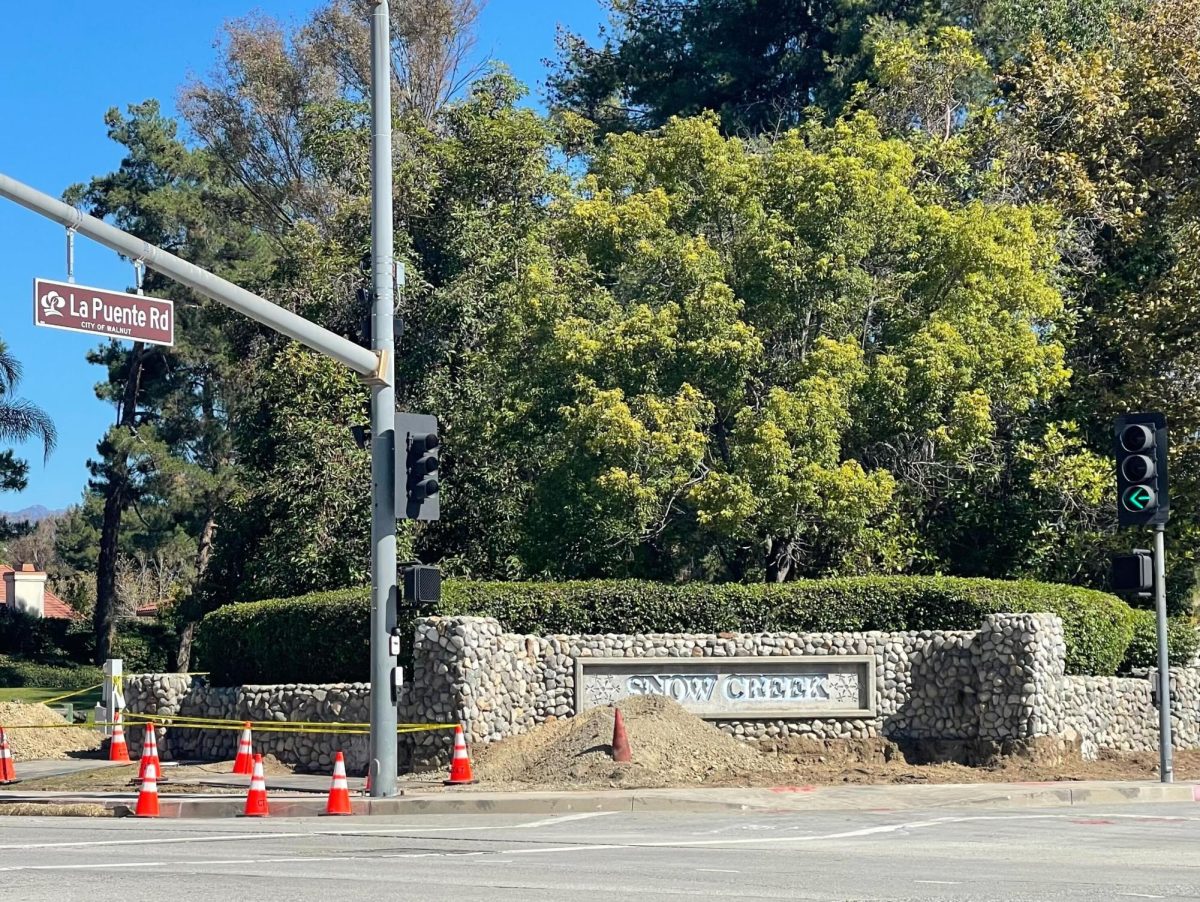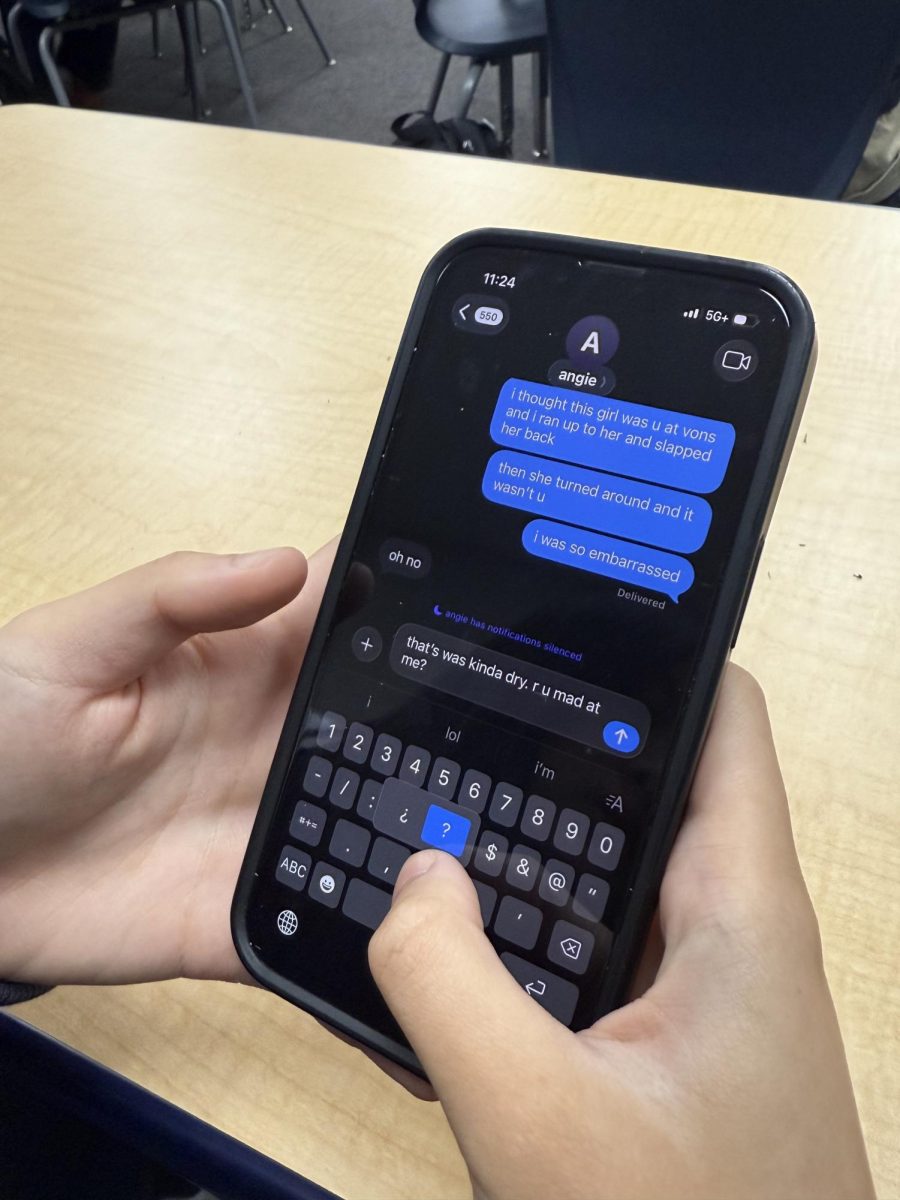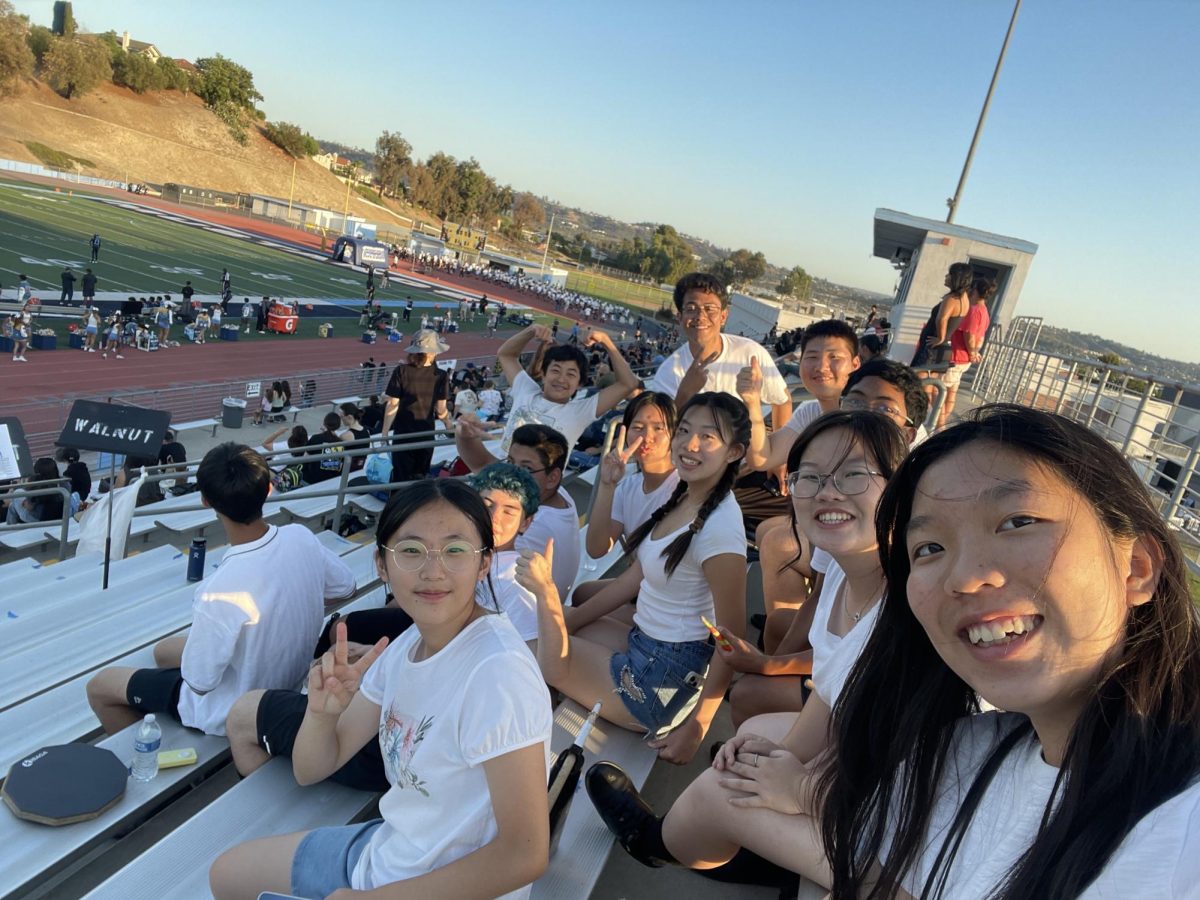Changes in Twitter policies lead to hate speech and misinformation
January 5, 2023
For a man who bought Twitter to make it a “platform for free speech around the globe,” Elon Musk is doing a remarkably good job at achieving the opposite effect. From a mass exodus of journalists to the rise of impersonators and hate speech, Musk’s Twitter acquisition has been nothing but a series of disasters.
Twitter, nicknamed the “digital town square” by Musk, is known for being the place people go for discourse about trending issues of the day. No matter the topic, the openness of the platform and 140-character limit makes it easy to gauge the general sentiment. As Twitter said on its about page, it exists to “serve the public conversation.” However, the series of recent changes to Twitter’s functionality has made its mission statement obsolete.
After Musk purchased Twitter for $44 billion in late October, he laid off about half of its employees before announcing a new subscription service called Twitter Blue. With this change, anyone would be able to get a blue check mark next to their username, an attempt to mitigate what Musk called Twitter’s “lords & peasants system.”
Musk claimed Twitter’s new subscription-based model will be a proponent for free speech, yet the only free speech being accommodated is misinformation. Before, the check marks on Twitter helped followers distinguish public figures and brands from impersonators. Because each verified account holder needed to prove their authenticity, including evidence of media presence and a government-issued ID, there was at least some buffer against blatant trolling. In this case, the exclusivity of verification is necessary because it ensures that the most visible accounts on Twitter use their platforms responsibly.
On Nov. 5, the same day Twitter Blue was launched, Twitter users were treated to the sight of senator Ted Cruz admitting his cannibalistic tendencies and a pledge from Coca-Cola to add cocaine back in its product — all impersonations at the hands of internet pranksters. On Nov. 6, Musk revoked Twitter Blue, after almost 140,000 people bought their check marks.
Since then, the Twitter Blue fiasco has only continued to be an expensive laughing stock among netizens. Musk briefly reinstated the service for one day before stopping it again, and he recently announced a relaunch in early December with different colored check marks for governmental organizations and companies.
Disregarding the fact that this seems like a needless overcomplication of a preexisting system, private individuals like celebrities and journalists would remain indistinguishable from Twitter Blue subscribers.
In the case of journalists, many of whom use Twitter to report breaking news, this change is particularly egregious. With paid users gaining the benefit of priority in replies, mentions and searches, it’s difficult for reporters to stand out in a sea of less newsworthy thoughts.
Other than allowing for the rise in misinformation, Musk’s definition of “free speech” is flawed because he seems to forget that there are exceptions, including obscenity, defamation, fighting words and true threats, many of which have shown a statistically significant increase since Musk’s acquisition.
According to the Network Contagion Research Institute, in the 12 hours after Musk bought Twitter, the use of the n-word increased almost 500% from the previous day. The Anti-Defamation League (ADL) also found more than 1,200 antisemitic tweets in the same timeframe.
The response from Twitter officials was measured. Yoel Roth, Twitter’s head of safety and integrity, acknowledged a “small number of accounts” posting derogatory terms, but went on to say that “Twitter’s policies haven’t changed: hateful conduct has no place here.”
However, after mass layoffs reduced Twitter’s staff from 7,500 to 2,000, leaving departments like those dealing with “safety concerns and deceptive foreign influence operations” with little to no employees, Roth’s statement is something he cannot substantiate.
Just recently, following a Twitter poll he issued, Musk promised to reinstate suspended users who “haven’t broken the law or engaged in egregious spam.” Among those affected would be Donald Trump, who was banned from Twitter for life after incendiary tweets about the Jan. 6 insurrection. More recently, following widespread protests in China, the platform was inundated with spam, pornography and gibberish tagged with keywords relating to the event.
Despite Musk purchasing Twitter under grand promises of freedom and democracy, it is clear that the platform has only declined under his erratic rule. In the end, what he claims to be “free speech” is only a red herring for him single-handedly making Twitter unusable.












